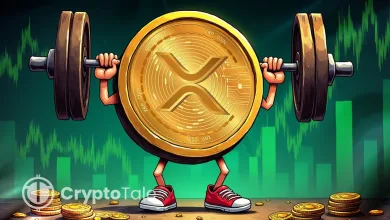Ethereum Pectra Upgrade Adds Smart Accounts, Boosts L2 Speed

- Smart accounts now let users pay fees with tokens and act like simple smart contracts.
- The staking limit lets one validator hold more ETH, which cuts account management effort.
- Ethereum can now handle more off-chain data, which lowers costs and speeds up apps.
Marking an innovative progress, Ethereum launched its latest network upgrade, Pectra, at epoch 364032, introducing powerful new features aimed at speed, adaptability, and ease of use. Pectra includes three major Ethereum Improvement Proposals: EIP-7702, EIP-7251, and EIP-7691. The proposed changes enhance account capabilities simultaneously with validator staking limit expansions and Layer-2 scalability improvements. These developments represent an essential advancement toward making ETH better.
Smart Accounts and Flexible Gas Payments
EIP-7702 allows externally owned accounts to operate like smart contracts, enabling what Ethereum co-founder Vitalik Buterin calls “smart accounts.” This lets users authorize logic-based actions from their wallet, similar to what smart contracts already do. More importantly, users are no longer required to hold ETH to pay gas fees.
They can now transact using other ERC-20 tokens. As Sergej Kunz, co-founder of 1inch, explained, the change allows “gasless” transactions and helps developers create apps that behave more like traditional web applications. Besides reducing friction, it improves the experience for both developers and end users. Apps can now sponsor fees or batch transactions more easily.
Raised Staking Cap for Validators
EIP-7251 significantly raises the staking limit for Ethereum validators, increasing the cap from 32 ETH to 2,048 ETH per validator. Previously, large stakeholders needed to manage hundreds of validators to participate fully. Now, institutional players and wealthy individuals can consolidate stakes, reducing operational burden.
Those who can stake can optimize their reward compounding through this system while running a simpler infrastructure designed for large-scale consensus participation. The result supports better economic decentralization without any trade-offs to security.
Related: Ethereum’s Pectra Upgrade Hits Holesky Snag, Mainnet Delayed
Layer-2 Scaling and Data Efficiency
Through EIP-7691, Ethereum established a better Layer-2 network integration by enabling block data blobs to carry more information. The implementation of EIP-7691 enhances Arbitrum and Optimism performance through improved batch processing, which results in enhanced off-chain transaction handling and simplified on-chain summary updates. The system delivers accelerated performance alongside reduced fee costs. PeerDAS (peer data availability sampling) implements cost-effective verification mechanisms for Layer-2 rollups, which enhances scalability across the board.
The integration of EVM Object Format within Pectra improves interoperable connectivity between chains at Layer-1 and Layer-2. The advanced account abstraction component of EIP-3074 enables batch actions together with sponsored fees and programmable security models. The implemented enhancements create a framework that strengthens Ethereum’s structure while enabling large-scale decentralized computing mechanisms.




